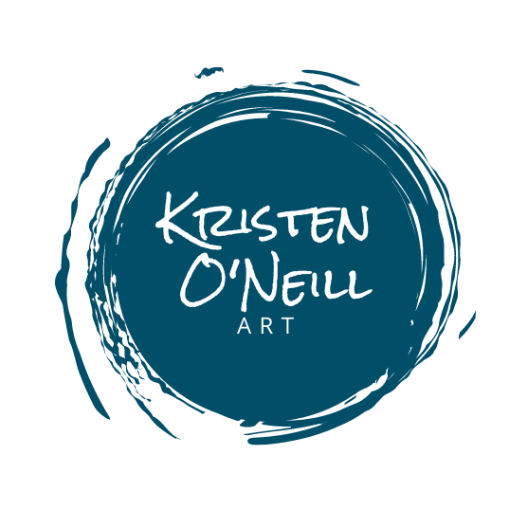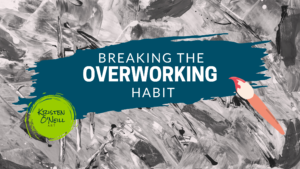As a painter, it can be tempting to keep adding more and more details to a painting in an effort to make it perfect. However, overworking a painting can often have the opposite effect, making the painting look cluttered and overburdened.
Establish a Focal Point
By establishing a clear focal point, you can ensure that all the elements in the painting serve a purpose and contribute to the overall impact of the painting. This can help you focus your attention and avoid overworking other parts of the painting.
In the Oath of the Horatii, David uses the lines of the architecture to frame up three different parts of the painting, the left where the Horatii brothers are taking their oath stand, the middle has the senior Horatii is accepting the oath, and on the right are the women who are grieving. The focal point is the impending moment of the oath. Even the lines of the floor lead up to that one focal point. Other parts of the painting are minimal and subdued, to not interfere with this plan.
Plan Out the Basics
Do you know your composition? Do you have a good grasp of your color needs before starting? A few common ways to plan are with sketches, a notan, with photos, or a sketch on the canvas.

Pre-mixing color samples is a great way to make sure you’ll have the colors you need on your palette BEFORE you start.
Take Breaks
Taking breaks from a painting can help you step back and look at it with fresh eyes. This can help you see when you’ve overworked a certain area and give you the perspective you need to move on to other parts of the painting.
Step Back
We can get fussy if we allow ourselves to stay very close to the artwork. Taking a step back allows us to see the painting in a new way. Suddenly the overall composition is easier to “read” and we see the values better.
Try stepping back a few feet, and then also as far back in the room as you can get. Several times in life I have had cramped painting conditions. Don’t let this stop you! Do what you need to get back from the work. I remember in my high school classroom, all us painters were in a small corner, crowded with easels. We would have to carry our paintings out into the hallway, to get back far enough to see them. It was worth the effort of trying to get a wet oil painting through a crowded high school classroom. Every time I went out into the hallway, something clicked, and I knew what I needed to work on next.
Set a Deadline
Setting a deadline for completing a painting can help you stay focused and avoid overworking the painting. By having a specific end point in mind, you can work with a sense of purpose and avoid getting bogged down in details. It doesn’t have to be a real deadline. You can also set up a time to just walk away and come back another day.
Practice Working Quickly
Quick studies or sketches can help you develop your ability to work quickly and with confidence. This can help you overcome the tendency to overwork your paintings by giving you a sense of the overall impact you want to achieve. You can take as long as you need thinking about what you want to do next. However, when you go in to make the brushstrokes, know what you want to accomplish. This will take away the unsure fussiness.
Trust Your Instincts
At the end of the day, painting is an expression of your unique vision and perspective. By trusting your instincts and allowing yourself to let go of the need for perfection, you can create paintings that are truly your own.

Taking an idea from a sketch to a painting. The lines in this scene attracted me to paint it, but I was concerned on how to do the composition. A sketch gave me the confidence to do the painting.
Overworking a painting can be a common problem, but by following these tips, you can develop the confidence to paint with purpose and avoid overworking your paintings. Remember to trust your instincts, work quickly, and enjoy the process – the results will speak for themselves.



